The Pell Institute for the Study of Opportunity in Higher Education of the Council for Opportunity in Education (COE) conducts and disseminates research and policy analysis to encourage policymakers, educators, and the public to address systemic equity issues in postsecondary education, and improve educational opportunities and outcomes of low-income, first-generation students, and students with disabilities. The Pell Institute is sponsored by the Council for Opportunity in Education (COE). The Pell Institute shares the mission of the Council to advance and defend the ideal of equal opportunity in postsecondary education. As such, the focus of the Council is to ensure that the least advantaged segments of the American population have a realistic chance to enter and graduate from a postsecondary institution.
The goals of the Pell Institute include:
- to serve as an information resource to policymakers and practitioners through the presentation of high-quality, rigorous research and policy analysis that is user-friendly and accessible.
- to work in partnerships at national, regional, state, and institutional levels to maximize the impact of the Pell Institute and to increase its relevancy to improving access to higher education.
History
The Pell Institute is named for Senator Claiborne Pell (RI-D), who served in the U.S. Senate from 1961 to 1997. Senator Pell was the principal sponsor of the federal Basic Educational Opportunity Grant, the student aid program that helps low-income students go to college. In 1980, the program was renamed the Pell Grant Program to honor the Senator’s efforts. To read more about Senator Pell, please click here (.pdf). To read the Pell Institute’s statement on Senator Pell’s passing and legacy, please click here (.pdf). To learn more about the Pell Insitute’s history and development, please click here.
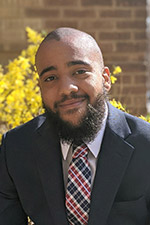
Terry Vaughan III, Ph.D. — Vice President, Research
Terry Vaughan III, PhD is the Vice President of Research at the Pell Institute for the Study of Opportunity in Higher Education. His research focuses on education theory and philosophy, education policy, equitable career pathways, and career development strategies for first-generation, low-income, and underrepresented students. He received his BA in Philosophy from DePaul University and his master’s and PhD from the University of Illinois at Urbana-Champaign.
Erick Montenegro — Senior Research Associate
Erick Montenegro is the Senior Research Associate at the Pell Institute for the Study of Opportunity in Higher Education. His research interests include equity-minded and culturally responsive assessment and evaluation practices in higher education, education policy, equitable pathways to careers, and access to higher education for low-income, first-generation, marginalized, and underrepresented populations. In 2017, Erick helped launch the national conversation on equity-minded assessment and is a leading voice in this movement. He also previously served on the board of directors for the Quality Assurance Commons for Higher and Postsecondary Education. Erick is a three-time alumnus of the University of Illinois at Urbana-Champaign earning a B.S. in Business Administration along with an Ed.M. and a Ph.D. both in Education Policy, Organization, and Leadership.
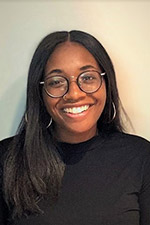
Marisha Addison, MA — Research Associate
Marisha Addison is the Research Associate at the Pell Institute for the Study of Opportunity in Higher Education of the Council for Opportunity in Education (COE). As a first-generation student and Federal TRIO alumna, she is passionate about using data to create results-driven solutions to equity issues in the United States higher education system. Her work at the Pell Institute includes documenting low-income, first-generation, and students with disability experiences and actively collaborating with over 3,000 TRIO programs to provide best practices and services for this traditionally underrepresented population. Marisha’s educational merits include a master’s from the University of Amsterdam and two Bachelor of Arts degrees in Geography and Sociology. She minored in African Studies, Chinese, and International Development.
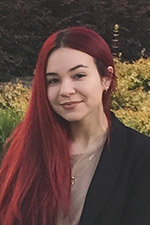
Alysia Marie Genao — Research Assistant
Alysia Genao is a research assistant for The Pell Institute for the Study of Opportunity in Higher Education and a program assistant for the Council for Opportunity in Education. Alysia is responsible for assisting with the dissemination of surveys, scheduling, and conducting meetings with research partners, maintaining data collection files, assisting with data analysis, and generating correspondence, reports, and graphics. Alysia is a Rutgers University Upward Bound TRIO alumna and a longtime advocate for equity in education. She received her Bachelor of Arts degree in Economics with a concentration in Public Policy from Pace University in New York City.
CONSULTANTS
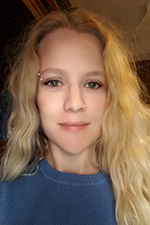
Nicole Brunt — Research Associate
Nicole Brunt is a research associate and has worked for the Postsecondary Education OPPORTUNITY (PEO) research newsletter since 2003 in conjunction with the Pell Institute for the Study of Opportunity in Higher Education since 2013. Nicole assists Tom Mortenson and the Pell team with the collection, organization, analysis, and reporting of education, demographic, economic and other data on opportunity for postsecondary education and training in the United States. Nicole graduated with her Bachelor of Arts in communication from William Penn University in 2001 and is currently working on obtaining her master’s degree at Fort Hays State University, studying information analysis and communications, and will be completing the degree in May of 2022.
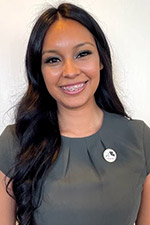
Sureima Santillan — Research Consultant
Sureima I. Santillan currently serves as a research consultant for the Pell Institute for the Study of Opportunity in Higher Education. As an Upward Bound TRIO Alumni, Sureima took on the role of a mentor in various organization to inspire and empower youth to pursue a higher education. Sureima joined the Council for Opportunity in Education in 2017, after serving as an education policy intern with the United States House of Representatives. She also received a fellowship to work in the United States Senate, working in the Senate Health, Education, Labor, and Pension (HELP) Committee. Sureima’ s responsibilities include organizational and logistical support for conferences such as U.S. Department of Education Training Grant for Federal TRIO Programs, Student Financial Aid Research Network Conference, COE’s Policy Seminar, and Capitol Hill briefings. Sureima graduated from UC Irvine with a double major in Criminology, Law, and Society and Social Policy and Public Service.
SENIOR SCHOLARS
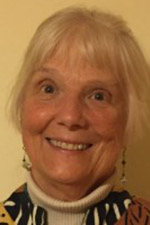
Margaret Cahalan, Ph.D. — Senior Fellow
Margaret Cahalan is the Director of the Pell Institute for the Study of Opportunity in Higher Education (Pell Institute) and the Vice President for Research at the Council for Opportunity in Education (COE). Dr. Cahalan joined COE in 2011, after serving as the division leader for the Secondary-Postsecondary Cross-Cutting (SPCC) Team within the Policy and Program Studies Services (PPSS) at the U.S. Department of Education (ED). She also served as a Co-PI for an i-3 grant awarded to COE entitled, Using Data to Inform College Access Programming. Prior to working at ED, Maggie worked as a statistical research contractor for over 20 years at Westat, Mathematica, and RTI. In this capacity she served as the project director for large statistical sample surveys including the National Study of Postsecondary Faculty (NSOFAS) and the National Study of Recent College Graduates (NSRCG). She also directed several TRIO national evaluations including the National Evaluation of Student Support Services and the National Evaluation of Talent Search, as well as several TRIO Performance Reporting Technical Assistance and Analyses contracts. These contracts were responsible for the re-design of the annual performance reports (APRs) of the Upward Bound, Student Support Services, and McNair programs to include individual student records and the building of longitudinal databases to track program outcomes.She currently serves as the Principal Investigator of the NSF funded iStronG project to develop a science curriculum designed to empower Upward Bound Students using systems dynamics modeling tools with a focus on green STEM careers and climate change solutions. She is the lead author on the Pell Institute and PennAHEAD publication series: Indicators of Higher Education Equity in the United States Historical Trend Reports. This project, now in its 6th edition, was begun in 2015, and has a major goal to serve as a tool for tracking progress from an equity perspective in the U.S .higher education system. The project also sponsors Shared Solutions Dialogues at the national, state, and local levels among multiple stakeholders to consider specific action plans to address the issues of systemic inequality in higher education. Maggie cares passionately about helping to find ways to reduce educational inequity and working toward an inclusive asset based talent development approach to education at all levels. She is also very much interested in place based education and action research working to mitigate and adapt to climate change and helping to promote the transition to a more just, co-operative and environmentally friendly world economy. Maggie received a Ph.D. in Sociology from the University of Illinois at Urbana-Champaign.
Thomas G. Mortenson — ([email protected])
Thomas G. Mortenson is a Senior Scholar at the Pell Institute for the Study of Opportunity in Higher Education in Washington, D.C. and an independent higher education policy analyst. Tom’s policy research focuses on opportunity for postsecondary education and training and the ways public policy fosters or impedes access to that opportunity. He has special concern for populations that are under-represented in higher education. His studies have addressed academic and financial preparation for college, access, choice, persistence, attainment, and labor force entry of college graduates. He is particularly interested in public and private finance of higher education opportunity and the enrollment consequences of the cost-shift from taxpayers to students that has been underway since 1980. He has been employed in policy research and budget analysis roles for the University of Minnesota, Illinois Board of Higher Education, Illinois State Scholarship Commission, and the American College Testing Program. Currently, Tom is editor and publisher of Postsecondary Education Opportunity (PEO), a monthly research newsletter devoted to analysis and reporting on the demographics, sociology, history, politics and economics of educational opportunity after high school. He provides consulting services on higher educational opportunity policy to state and national organizations, and makes presentations on opportunity throughout the country.
Lana Muraskin, Ph.D.
Lana Muraskin is an education consultant focusing on evaluation and postsecondary access and retention. Her recent work identifies practices that may improve postsecondary access and outcomes for low income and first generation students. She was the principal investigator of the National Evaluation of Student Support Services and the evaluation’s follow up study of “best practices” in Student Support Services (under subcontract to Westat). She participated in the design and the case study portion of the National Evaluation of Talent Search (under subcontract to Mathematica), and played a major role in the first two years of the National Evaluation of GEAR UP (under subcontract to Westat). In work with the Council for Opportunity in Education (COE) and its institutes, Dr. Muraskin has published Raising the Graduation Rates of Low-Income College Students (with John Lee, support from Lumina Foundation), Upward Bound Math Science — STEM Enrichment Education that Works (support from the GE Foundation), Graduates of Denver Public Schools — College Access and Success (with Pam Buckley, support from the Piton Foundation), and A Structured Freshman Year for At-Risk Students (a COE monograph). In other recent work, Dr. Muraskin has just completed a design paper for new federal evaluations of the GEAR UP program, focused on identifying best practices (under contract with RTI). She has also participated in the Achieving the Dream initiative of the Lumina Foundation, aimed at improve persistence and graduation rates in community colleges. Dr. Muraskin has a Ph.D. in Education from the University of California, Berkeley. She has served as a federal education official, as the research and development director for a national education association, and as a senior staff member and a principal of contract research firms.
Arnold Mitchem, Ph.D.
Dr. Arnold Mitchem, President Emeritus of the Council for Opportunity in Education, has been a voice for low-income, first-generation students and individuals with disabilities his entire career. Thanks to his work, the federally funded TRIO Programs have expanded by nearly 400% and now serve more than an estimated 790,000 students at 1,000 colleges and universities. He began his career on the History faculty at Marquette University in Milwaukee and was named the Director of the Educational Opportunity Program in 1969. He relocated to Washington, D.C., in 1986 to serve as President of the Council for Opportunity in Education until October 2013. Dr. Mitchem has been awarded Honorary Doctorates from eleven universities — Lehman College; DePaul University; University of Illinois at Champaign-Urbana; University of Liverpool, Marquette University; Marycrest College; University of Massachusetts Boston; Lewis University; St. Joseph’s University; Saint Louis University; and SUNY Buffalo State.
EQUITY ADVISORY PANEL AT THE PELL INSTITUTE
- Elizabeth L. Ambos — Retired, Council on Undergraduate Research (CUR)
- James Applegate — Illinois State University
- Paul L. Beasley — Retired Director of TRIO Programs — University of South Carolina
- Joan Becker — University of Massachusetts Boston
- Gail Bonhomme — University of Louisiana at Lafayette
- Khristin Boyer — Trellis Foundation
- Alberto F. Cabrera — University of Maryland
- Alicia Dowd — Pennsylvania State University
- Jennifer Engle — Bill & Melinda Gates Foundation
- Lorelle Espinosa — American Council on Education
- Carla Fletcher — Trellis Company
- Jim Fridley — University of Washington
- Ruth Heuer — RTI International
- Kimberly Holmes — George Mason University
- Rodney Hopson — University of Illinois Urbana Champaign
- Nicole Ifill — Bill & Melinda Gates Foundation
- Ozan Jaquette — University of California Los Angeles
- Shruti Jayaraman — Chicago Beyond
- Susan Johnson — Lumina Foundation
- Richard Kahlenberg — The Century Foundation
- Julie Laurel — Excelencia in Education
- John Lee — Retired — Coffey Consulting
- Susana Contreras-Mendez — Institute for Women’s Policy Research
- Barmak Nassirian — American Association of State Colleges and Universities
- Dallas Pell — Pell for Prisoners
- Lana Muraskin — Retired Senior Scholar — The Pell Institute for the Study of Opportunity in Higher Education — COE
- Tafaya Ransom — Bill & Melinda Gates Foundation
- Jamey Rorison — Bill & Melinda Gates Foundation
- Jen Rudolph — Cornell University
- Deborah Santiago — Excelencia in Education
- Wendy Sedlak — Lumina Foundation
- Tom Snyder — National Center for Education Statistics
- Tara Spain — Travelers
- Jeff Strohl — Georgetown University — Center on Education and the Workforce
- Jennifer Wells — Bill & Melinda Gates Foundation
- Martin Vanderwerf — Georgetown University Center on Education and the Workforce
- Mamie Voight — Institute for Higher Education Policy (IHEP)
- Jeff Webster — Trellis Company
- Katherine Wheatle — Lumina Foundation
PELL EDUCATION POLICY INTERNSHIP
The Pell Institute Internship is a research experience that offers graduate students the opportunity to develop or refine research skills and cultivate an understanding of the nexus between education research, public policy, and educational practice. The internship can be 4, 8, or 12 weeks and is open to graduate students who are interested in gaining research experience in higher education policy.
Interns should be highly motivated, organized, and able to work well independently. Interns may work closely with researchers at the Pell Institute, and, on occasion, assist Council for Opportunity in Education (COE) staff. Primary responsibilities will include conducting research for literature reviews and collecting and analyzing data for current projects. The internship experiences are crafted around interns’ skills and interests. The types of education research and policy analysis the Pell Institute is or has engaged include but are not limited to:
- Researching and synthesizing “best practices” for (a) supporting students’ academic achievement, college persistence, and completion; (b) recruiting and enrolling students in college; and (c) transferring students from two-year to four-year postsecondary institutions.
- Developing toolkits to support campus-wide retention initiatives and the evaluation of college access and success programs.
- Identifying and compiling college student funding opportunities in a scholarship directory.
- Surveying and assessing the use and impact of college access curricula.
- Providing research and analytical support for COE on federal TRIO programs.
How to Apply
We accept applications throughout the year, but internships are only offered to qualified applicants on an as needed basis. To apply, please fill out this application.
All applications should include a cover letter (not to exceed two pages) describing your interest in the internship, background and experiences, research focus, and future professional goals. Applications are reviewed upon submission. Only complete applications will be reviewed. Questions should be directed to ([email protected]).
CONTACT US
The Pell Institute for the Study of Opportunity in Higher Education
1025 Vermont Avenue, N.W.
Suite 400
Washington, D.C. 20005-3516
Telephone — (202) 638-2887
Fax — (202) 638-3808
Website — (https://www.pellinstitute.org/)
Hours of Operation — Monday thru Friday, 9 a.m. to 5 p.m. (ET)
- Terry Vaughan III, Ph.D.
Vice President, Research
(202) 638-2887, Ext. #369 — (E-mail Address) - Marisha Addison
Research Associate
(202) 638-2887, Ext. #209 — (E-mail Address) - Alysia Marie Genao
Research Assistant
(202) 638-2887, Ext. #350 — (E-mail Address) - Sureima Santillan
Research Consultant
(559) 472-8352, (E-mail Address) - Margaret Cahalan, Ph.D.
Senior Fellow
(202) 638-2887, Ext. #207 — (E-mail Address)
Indicators of Higher Education Equity in the United States — 2022 Historical Trend Report
Pell Institute PDF
Indicators of Higher Education Equity in the United States — 2022 Historical Trend Report (.pdf)

Travelers EDGE — 10 Years of College Access and Success
Reflections on Connecting Research and Practice in College Access and Success Programs
Pell Institute PDF
Reflections on Connecting Research and Practice in College Access and Success Programs (.pdf)






















